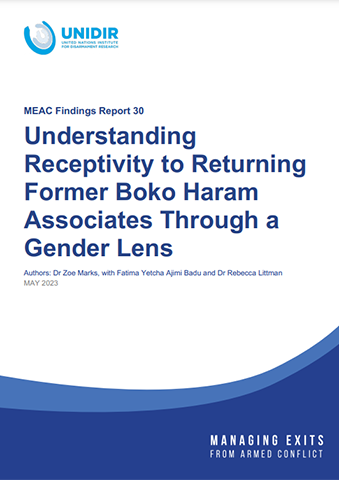This report is based on data collected from December 2020 to March 2021, as part of a phone survey with a representative sample of 2,963 community members from key locations in and around the Maiduguri metropolitan area in Borno State, Nigeria. It examines the evidence around how gender impacts social acceptance of ex-combatants and individuals suspected of association with Boko Haram.
This data may be useful to governments, UN and NGO partners working in the region to bolster their community outreach and messaging around reintegration programmes. The data presented herein are unique in that they were collected in an ongoing conflict context, while reintegration is actively ongoing and communities in and around are receiving ex-associates of Boko Haram and other armed groups.
The report ends with an examination of key policy and programmatic implications of these findings.
Citation: Zoe Marks, Fatima Yetcha Ajimi Badu, and Rebecca Littman (2023). "Understanding Receptivity to Returning Former Boko Haram Associates Through a Gender Lens," Findings Report 30, UNIDIR, Geneva, https://doi.org/10.37559/MEAC/23/04
